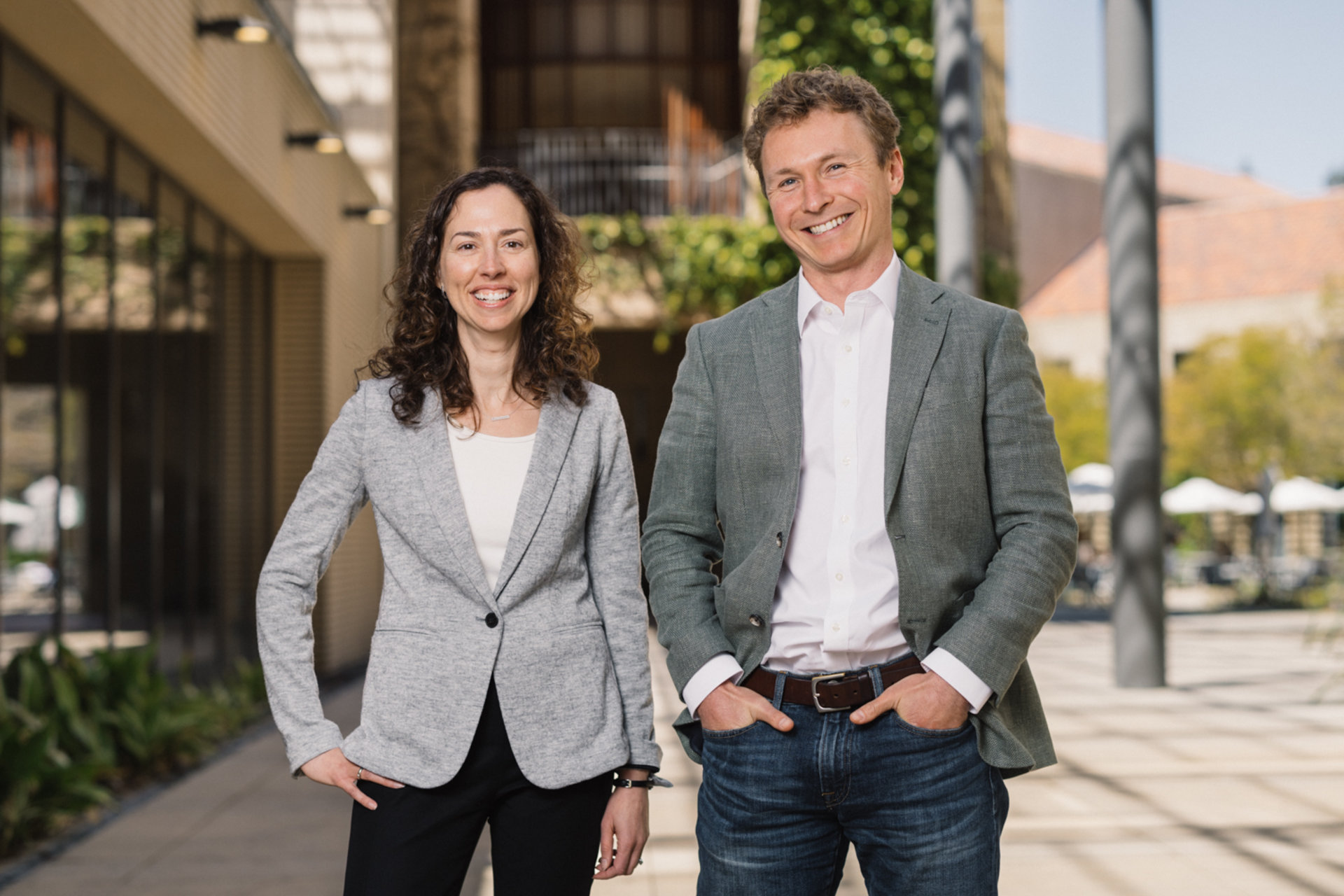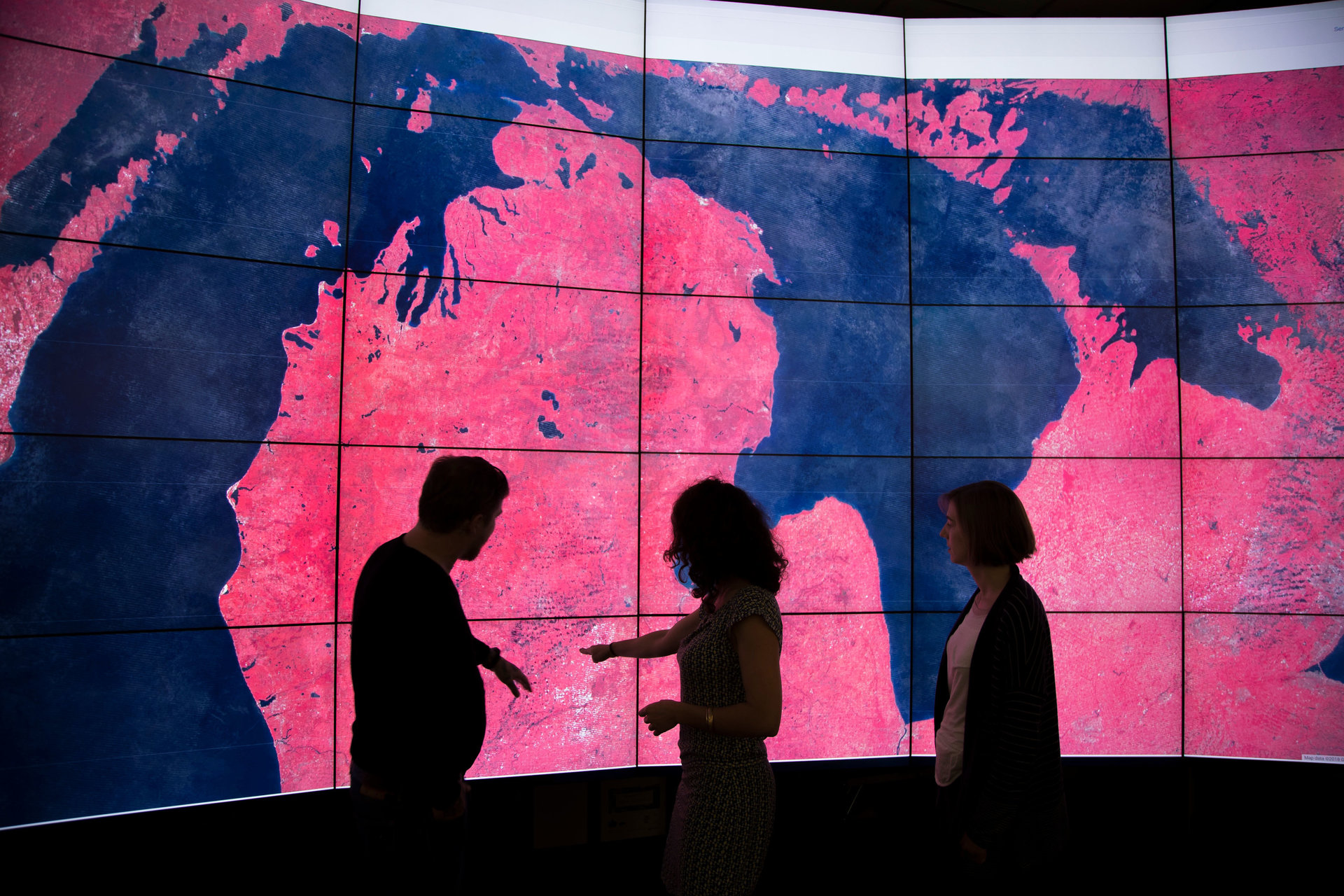COP21: Insights on the global climate meeting in Paris
The 21st annual United Nations Conference of the Parties (COP21) in Paris ended on Dec. 12, 2015, with a landmark agreement to reduce global greenhouse gas emissions. "The universal agreement’s main aim is to keep a global temperature rise this century well below 2 degrees Celsius and to drive efforts to limit the temperature increase even further to 1.5 degrees Celsius above pre-industrial levels," according to a U.N. press release. "The 1.5 degree Celsius limit is a significantly safer defense line against the worst impacts of a changing climate." More than 30 Stanford students and faculty attended the conference from Nov. 30 to Dec. 12. Their comments and those of other Stanford experts are published below:
The Paris Climate Agreement: The real work starts now
The Conversation 12.13.15

The Paris climate agreement is an extraordinary achievement, setting a target of capping global warming at 1.5°C. But this more ambitious target will be beyond our reach within a decade or two at current rates of fossil-fuel use around the world, say Rob Jackson and Pep Canadell.
The Paris Climate Deal is a (small) step forward
New Republic 12.12.15

There is a difference between inking the first truly global climate pact and solving global warming, says Jeffery Ball of Stanford's Steyer-Taylor Center.
Stanford student blog from Paris
Stanford@COP21 12.12.15

A delegation of 30 Stanford undergraduate and co-term students is attending the Paris Climate Change Conference. Over the next two weeks, they will interview participants, observe the city, and report on the state of negotiations through videos, photos, and commentaries.
QA: Can world's nations agree on two degrees?
Stanford Woods Institute 11.23.15

Stanford scholars have pioneered the research needed to recognize and meet the challenge of climate change since the issue came to light more than 20 years ago. Their findings, many of which are recorded in reports of the U.N.'s Intergovernmental Panel on Climate Change, help inform delegates from 195 countries gathering in Paris. The Stanford Woods Institute for Environment asked several experts on climate change-related issues ranging from energy and ecosystems to law and economics to share their perspectives on the upcoming talks.
Climate change assessment report timeline
Stanford Woods Institute 11.23.15

The Intergovernmental Panel on Climate Change, or IPCC, guides delegates’ decisions through climate change assessment reports. These reports present a consensus of more than 2,000 researchers worldwide.The perspectives of fourteen Stanford specialists in particular have shaped the IPCC and its reports since the first Conference of Parties in 1995. The Stanford Woods Institute has prepared a timeline of Stanford's contributions from engineering, science, economics and law.
How renewable energy could make climate treaties moot
Scientific American 11.23.15

Powering the U.S. and 138 other countries exclusively with wind, water and solar would solve global warming—and is entirely doable, according to Mark Jacobson, a professor of civil and environmental engineering at Stanford. He outlines his proposal in the Nov. 23 issue of Scientific American.
What's the climate worth?
SIEPR Policy Brief 11.24.15

Estimates of potential economic damages from climate change might understate the actual risk by a factor of five or more, says Marshall Burke, a center fellow at Stanford's Freeman Spogli Institute and an assistant professor of Earth system science. In this Stanford Institute for Economic Policy Research policy brief, Burke discusses the sobering economic forecast for a changing world climate.
Insights into the ongoing California drought
Geophysical Research Letters 11.24.15

Noah Diffenbaugh, editor-in-chief of Geophysical Research Letters, presents a special collection of papers examining different aspects of the California drought, including the large-scale climate context, the long-term paleoclimate context and the role of anthropogenic global warming.
Global climate agreement: After the talks
Nature 11.25.15

In this Nature commentary, James Leape (Stanford) and David Victor(University of California-San Diego) argue that the real business of decarbonization begins after an agreement is signed at the Paris climate conference.
Stop emissions!
MIT Technology Review 11.29.15

The politicians who go to the Paris Climate Change Conference are making commitments that fall far short of what would be needed to substantially reduce climate risk, says climate scientist Ken Calderia of the Carnegie Institution's Department of Global Ecology at Stanford. It should no longer be acceptable to dump carbon dioxide in the sky, he argues in the Nov. 29 online edition of MIT Technology Review.
What will make the climate talks a success?
Smithsonian 11.30.15

Stanford Earth researcher Aaron Strong joins New York Times reporter Andy Revkin to discuss the history of the U.N. climate summit and what is different at this year's event.
Expanding renewable energy
Stanford Report 12.1.15

Researchers at Stanford's Steyer-Taylor Center for Energy Policy & Finance analyzed the experiences of Germany, California and Texas and found that renewable energy can make an increasingly cost-effective contribution to alleviating climate change. The report, led by Dan Reicher and Felix Mormann, was released in time for the 2015 Paris Climate Conference, where world leaders are discussing strategies to deal with global warming, including massive scale-ups of renewable energy.
Corporations are acting in self-interest at climate talks
New Republic 12.7.15

Something big is happening at the Paris conference, says Jeffrey Ball. It’s subtle, it’s unofficial and it’s motivated by the basest self-interest. Yet it has more potential to significantly affect carbon emissions than anything likely to emerge from the official diplomatic talks. It’s a creeping and profound conclusion by global business that, like it or not, its bottom line is going to be affected by climate change.
Global fossil fuel emissions could decline in 2015, Stanford-led study finds
Stanford Report 12.7.15

Rob Jackson and colleagues report that the rapid increase in global CO2 emissions from fossil fuels has slowed in the past two years, underlining the need for action to permanently lower emissions.
Paper co-authored by Stanford biologist premieres in Paris
Stanford Report 12.8.15

A seminal paper co-authored by Elizabeth Hadly is the inspiration for Tomorrow, a new documentary premiering at global climate talks in Paris. The documentary producers launched the project after reading about Hadly's 2012 paper and its warnings that Earth is approaching a tipping point beyond which the planet’s climate and biodiversity will be radically and unalterably changed beyond anything humanity has known.
Video: Germany's low-carbon future
New York Times 12.8.15

Dan Reicher, director of Stanford's Steyer-Taylor Center, discusses Germany’s introduction of renewable energy sources during The International New York Times Energy for Tomorrow conference in Paris.
Paris might be the last, best chance on climate change
Stanford Graduate School of Business 12.8.15

"The Paris talks are arguably the last, best chance for a comprehensive and global agreement on reducing carbon emissions over the next few decades," says Stefan Reichelstein. "Without a meaningful agreement in Paris, governments all over the world will fall back on their own piecemeal policies, without any reasonable assurance that this global problem is being addressed."
Farming and food risk from climate change
Pulitzer Center on Crisis Reporting 12.9.15

Chris Field and Katharine Mach discuss the impact of climate change on agriculture in a Q&A with the Pulitzer Center.
Nine questions for a renewable energy expert
CNN 12.10.15

If there's anyone who can help figure out how to address climate change, says CNN, it's probably Stanford Professor Mark Jacobson, director of The Solutions Project, which aims to help the world move to 100- percent renewable energy. CNN invited readers to ask Jacobson questions on Facebook about COP 21 and climate change.
Explore More
-
The Stanford Forum on the Science of Energy Transition brought together scientific experts, technology innovators, and industry leaders to explore practical pathways to a decarbonized future.
-
A unique hands-on class teaches Stanford Law School students how to work with early-stage companies that have the potential to move the needle on climate and sustainability.
-
The first group of scholars supported under the new Sustainability Accelerator Fellowship program will focus on the challenge of removing billions of tons of greenhouse gases annually from Earth’s atmosphere by the middle of this century.




